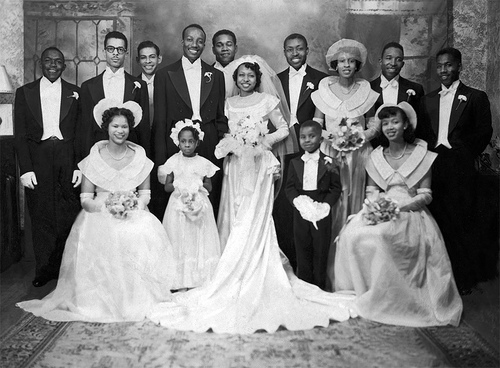
Last month, we unpacked some of the myths of what makes for a happy long-term relationship — a lack of fighting, adeptness at conflict resolution, insufficiently low expectations for one’s partner — and then laid out the easiest, most effective, most research-verified approach to maintaining a happy, successful marriage: treating it like a bank account.
Studies conducted by foremost relationship expert Dr. John Gottman have shown that happy couples don’t necessarily fight less or have better conflict resolution skills than unhappy couples. The difference between the former and the latter rather comes down to the fact that in a happy relationship, couples have more positive than negative interactions — on a ratio of at least 5:1. By consistently making deposits of positivity and maintaining this “surplus” of good feelings in their “relationship bank account” a couple creates a buffer that allows them to make regular “withdrawals” (conflict), without it effecting the overall health and stability of their relationship. They’re able to accept each other’s flaws and argue — even poorly — while still maintaining their love, respect, and admiration for each other.
But what constitutes a “positive interaction” and how do you go about making “deposits” of positivity into your own relationship bank account?
Today we’ll discuss some of the best ways of keeping your relational balance sheet “in the black,” almost all of which center on developing, strengthening, and maintaining the friendship between you and your partner.
Romantic Love = Friendship + Attraction
Whether used as inspiration for poetry, literature, or music, romantic love has been written about endlessly for thousands of years. And while its function as cultural muse is certainly laudatory, our ideas about love sometimes obscure its real nature. We get so stuck on the mystery, the abstractness, the undefinable qualities of romance, that it stops seeming like anything we can get a handle on, and most importantly, control. Hence the ambiguity captured in a phrase like “We fell out of love” — as if the dissolution of a relationship was as random and unpredictable as slipping on a banana peel.
Romantic love does certainly have its more ethereal nooks and crannies, but the very heart of it is really quite simple; as Gottman explains, “43 years of longitudinal research shows that marital friendship is central to marriage happiness.” In explaining that “happy marriages are based on a deep friendship,” what he has in mind is “a mutual respect for and enjoyment of each other’s company. These couples tend to know each other intimately — they are well versed in each other’s likes, dislikes, personality quirks, hopes, and dreams. They have an abiding regard for each other.”
When two people who are not sexually attracted to each other love, admire, respect, and are just terribly fond of one another, that’s friendship.
When two people who are sexually attracted to each other love, admire, respect, and are just terribly fond of one another, that’s also friendship; the attraction simply adds the potential for passion as well. Or as the old saying goes, “Love is friendship on fire.”
Strong romantic love can thus be maintained by many of the very same things that maintain strong platonic love. (The big exception being that it’s typically not recommended that you have sex with your friends, if you want to stay just friends, or friends, period.) In fact, the stronger you make your marital friendship, the stronger the romance and passion in your relationship will be.
Thus, while many couples think creating a happy marriage means working directly on its romance and passion, or directly on their sex life, most often simply working on their foundational friendship indirectly takes care of all those issues.
And makes for much more of a good time.
The Best Ways to Fund Your Relationship Bank Account
The huge upside of the relationship bank account approach to preserving the health of your marriage, is that it’s a heck of a lot easier and more enjoyable than “working on your relationship” (does any man look forward to his wife’s request to talk about their marriage?). Building a marital friendship is just like building a platonic one — it does take some effort, but it’s satisfying and fun.
It doesn’t require making big moves either. Some couples think the best way to restore passion to a relationship is to do things like taking really romantic vacations together, or even engaging in a regular date night. But these occasional, more “dramatic” acts only benefit a relationship if they work to fan the flames of existing romance; they’re not effective at reviving embers long grown cold. If you’re only making a big deposit to your relationship bank account once or twice a year, or even once a month, then it’s invariably going to run dry during the in-between times — you’ll start making “withdrawals” in the absence of funds, incur “overcharges,” and ruin the “credit” that’s so essential for ensuring a healthy future together.
Instead, it’s the little stuff you do day in and day out that matters most. Small deposits of positivity must be made consistently and continually.
Below are the tried and true practices based both on Gottman’s research and personal experience that best, as he puts it, “increase the sense of romance, play, fun, adventure, and learning together that are at the heart of any long-lasting love affair.”
Intentionally Create a Culture as a Couple
You’ve heard of culture operating on a macro level in terms of countries, and even companies and teams.
But wherever just two or more people associate, a micro-culture exists as well.
We’ve talked before about intentionally creating a culture in your family as a whole, but you should also work to create one just with your wife.
A culture consists of shared norms, customs, values, rituals, symbols, goals, stories, and so on. Together, such elements contribute to the sense of shared meaning that not only strengthens societies, but personal relationships as well.
If you aren’t intentional about creating a culture in your marriage, then it most often defaults to whatever external circumstances are working upon it. If you’d rather not have a marital culture that’s molded by the vicissitudes of life and the opinions of friends, family, and pop culture, then be deliberate about shaping the following things yourselves:

Have a why — a marital mission. It’s amazing how many people enter into the most important partnership of their lives, without really knowing why they’re doing it. Sure, “because we love each other” is a great reason to get hitched, but affection is a feeling, and a fluctuating one at that. What else undergirds the fact that two former strangers have decided to stake everything on a total union and move through their entire existence side-by-side?
Do the two of you aim to love and serve God and raise a brood of Christ-following kids? Do you want to rear a new generation of kind, freethinking humanists? Do you hope to work as a dynamic humanitarian-aid-distributing duo? Do you see your marriage as a mutual support towards a life of travel and adventure? Is marriage a laboratory of love where one learns to be less selfish and more charitable?
What are your shared goals? You should certainly have individual goals that you each work to support each other in (making compromises where they conflict). But you should also have aims you’re working towards together.
What are your values as a couple? What are your shared principles?
What do you think is the purpose of marriage as a whole?
You and your wife should discuss these questions, and know your answers to them. It’s a discussion that should be continual — as these answers will change over time. You may even consider creating a mission statement together, that codifies the purpose and principles of your marriage.
Keep in mind that you’re not always going to agree on your values and goals, and that’s not only okay, but healthy. The trick is to try reach agreement on as many of the fundamentals as possible, compromise where you differ, support each other’s individual goals, and try to mesh your respective views into a blended sense of overarching mission.
Establish traditions. Traditions create memories, add texture and seasonal rhythmicity to life, reinforce the values of your marital micro-culture, and strengthen the bond of your relationship. These traditions don’t have to center on holidays, or even be very big — they can be little things done weekly, monthly, or yearly.
Maybe you always cook dinner together on Friday nights. Or take the whole day off to go skiing on your birthdays. Or take a drive to look at the fall foliage every October. Or go to the dog park and then out for coffee every Sunday morning.
Engaged in regularly, such “ordinary” traditions have the effect of enhancing a shared identity — a distinct sense of “us.”
Be nostalgic. While a couple should always be having new experiences and making new memories, you should also regularly reminisce about the experiences you’ve had in the past. One of the most amazing things about marriage is the way your respective life stories, which were formerly entirely discrete, begin to be inextricably intertwined. Regularly recalling this shared past — both its joys, as well the tough times you made it through together — revives the poignant feelings from these singular moments. You remember the ardor attendant to your early relationship, the admiration you felt as you watched each other bounce back from a challenge, and how much you enjoy each other’s company on life’s travels. You remember how much you cherish this person, and why you got hitched in the first place.
No wonder then that Gottman’s research has found that “94 percent of the time, couples who put a positive spin on their marriage’s history and their partner’s character are likely to have a happy future as well.” When couples can no longer recall the happy times of their past, or come to see formerly warm memories through a negative lens, their relationship is usually in big trouble.
So spend time engaging in “remember when’s?” in a positive way. Kate and I actually have this shtick where we say, “Hey, remember when….” but then fill in the blank with something pretty small and recent, but funny. Like, “Hey, remember yesterday when you came out of the bedroom and Scout had cut off half her hair?” We engage in this at least several times a day. It’s tongue-in-cheek because of course the other person remembers something that happened last week or last month. It’s just an opportunity to recall something funny and laugh about it again. Perhaps it adds to our shared identity. Really, just having funny shticks of any kind that you and your wife think are hilarious is probably another way of keeping marriage happy.
Celebrate the myths of your love. “Myths” here doesn’t refer to something untrue, but the stories of your relationship that have been distilled down, embellished, and enhanced over time, and which, most importantly, become kind of symbolic explanations as to why you’re together. You know, the story you tell of how if you hadn’t been sitting at that one table at the library, on that certain day, at that certain time, you wouldn’t have ever met your wife. Or how everyone told you that your relationship wouldn’t last, how your own parents were against you getting married, and how you’ve beaten the odds and proved them wrong. These “myths” are a central part of your “story of us” and enhance your gratitude for one another, as well as the sense of your marriage being meant to be.
By working on all the above elements and developing your marital micro-culture, you gain a greater sense of who you are as a couple and develop a deeper purpose, meaning, and mission to your marriage — a spiritual dimension that elevates it from the ordinary to the profound. The relationship becomes “Us against the world” and you become joyful comrades who can dive into any adventure and face any challenge as a team.
Stay Connected

A marriage is like a living organism. Each spouse can exist on his or her own, but the relationship that exists between them shares a circulatory system. If the spouses start living largely disconnected, parallel lives (and this can easily happen while still sharing a bed and living under the same roof) and stop pumping “blood” between them, then first some of the “limbs” die, and then the gangrene spreads, and finally the relationship kicks the bucket.
It’s paramount then to keep the relational circulatory system strong and flowing by staying closely connected to one another — practicing what Gottman calls “attunement.” You keep track of the details of each other’s inner and outer worlds — your respective doubts, dreams, worries, goals, frustrations, etc. It’s about engaging in conversation, regularly and deeply. It’s a continual process of turning towards each other, so that as you and your partner grow, you can better grow together.
It sounds like a relatively simple task, and it usually is when you’re younger and just starting out, and your responsibilities are fewer. But then jobs get busy, and kids enter the picture, and it becomes easier and easier for spouses to become two ships passing in the night.
When a set of young professionals were monitored 24/7 for a study, researchers found that they only engaged in 35 minutes of conversation…a week. And even this “conversation” largely consisted of talking about to-dos and chores that needed getting done. Clearly, this is a recipe for romantic gangrene.
To stay connected, you’ve got to prioritize talking with your spouse more than that. A lot more.
Gottman has found that the most important connection time for couples is at the end of the day. After typically being separated during the morning and afternoon — having individual successes and frustrations while facing outward — a couple needs to turn back towards each other and share what’s gone on. In this way, they help each other manage their respective external stressors, so that outside pressures don’t adversely affect the relationship.
Here are some tips for making conversations, whether at the end of the day, or any other time, more fruitful and connective:
Put away your phone and laptop. It’s easy to feel that you’re so comfortable with each other that rules of etiquette don’t apply, and it’s okay to check your phone while you’re talking to your wife. But you shouldn’t only use your best manners with strangers, but with the love of your life as well. It’s hard to have a deep, meaningful conversation if one or both partners are scrolling through Instagram at the same time.
Talk when the kids go to bed. You’ll probably discuss your day in snatches when you or her or the both of you get home from work, during dinner, and as you get the kids ready for bed. But anyone with children knows that having anything approaching a cohesive conversation when the under-eight-set are around is nearly impossible. It’s non-stop interruptions. So carve out time after the ankle-biters have hit the hay to actually talk to each other.
Be supportive and understanding. Sometimes your evening conversations are going to include some venting from one or both parties about how their day went. Listen to each other’s frustrations so you don’t create a second conflict around your lack of attention. Don’t minimize their concerns, tell them you’re sorry they’re having a hard time, and express your solidarity and the fact you’re in it together. Remember, it’s you guys against the world. For detailed tips on how to comfort someone having a hard go of things, check out this guide.
Ask open-ended questions. Instead of just asking, “How was your day?” and then letting the discussion die after your wife’s typically short reply is given, follow up with more open-ended questions. What was your favorite part of the event? Why do you think you were so nervous? How do you feel the prospects are going for getting that done? How did so-and-so react to what you said? Did you read anything interesting today?
Intentionally feed interesting conversation topics into your relationship. Sometimes interesting things go on at work or at home, but let’s face it, most days are ordinary and pretty boring. And yet couples lament the fact they talk about nothing but work or their kids, as if fascinating discussion topics are going to magically drop out of the sky. They’re not. Instead, if you want to have engaging conversations with your wife, then you both have to be intentional about finding some interesting conversation fodder to chew on.
Commit to both listening to the same podcast and then discuss it. Attend a Saturday night church service, and then talk about the sermon at dinner afterwards. Read a book together every night. Kate and I have been slowly working our way through the collected works of C.S. Lewis. Most nights (we’re definitely not perfect about it), we read one short chapter aloud, taking turns reading the paragraphs. Then we talk about anything that stuck out to us about the text. We also challenge each other to bring a few interesting stories to our date night dinners; we both have to look at news sites and blogs during the day, and come ready to share some interesting tidbits.
There’s no reason to ever stare at each other silently during your meals; you’ve just got to make more of an intentional effort to establish what our friends call “QC” (Quality Conversation).
“Tell me about your hopes and dreams.” From time to time, Kate and I will turn to each other and say, “Tell me about your hopes and dreams.” In some ways, it’s one of our shticks; we know it’s kind of funny to say that to someone directly, especially somewhat out of the blue, and we usually deliver it with a bit of a wry smile. But it’s also an earnest invitation, that the other person answers seriously.
Keeping track of each other’s “Hopes and dreams,” as silly as it may sound, is a central part of staying attuned, Gottman says. It’s a chance to check in with each other’s needs and goals, and discuss how you can work together to bring them about, so that neither partner feels stymied.
Do a regular date night (out or in). While date nights won’t save your marriage if you’re barely speaking the rest of the week or month, they are a fortifying force and chance to re-connect on a more significant level. Try to mix it up and do new things on your dates; researchers say that when couples engage in novel activities, the old butterflies they once felt for each other come fluttering back.
Keep in mind that date nights don’t have to be elaborate or expensive. You don’t even have to leave the house; we’ve got a bunch of cheap and fun “stay-in” date night ideas right here.
Do an “annual retreat.” One tradition Kate and I have found particularly beneficial is to go camping once a year, without kids, as a kind of an annual marital retreat. Sitting by the fire, with phones put away, the conversation becomes even deeper and more wide ranging. We use the time to really get into our “hopes and dreams,” talk about highlights and low-lights from the year, and discuss individual and family goals. It does wonders for re-connecting. Even if you’re not the camping type, you could decide to stay over at a bed and breakfast and do the same kind of thing.
The crucial thing about staying connected, which bears re-iteration, is that it’s an absolutely continual thing. Keep checking in with each other as to the state of your inner and outer worlds.
Express Regular, Effusive Appreciation

There’s no better grease in the gears of love than gratitude. Remember, romantic love isn’t so mysterious; it’s based on the fulfillment of basic human needs, one of the strongest of which is simply to be recognized and appreciated. Truly, spouses are willing to put up with a lot more guff and foibles from their partner, when that partner regularly expresses the fact they find them worthy, admirable, and indispensable.
But expressing appreciation doesn’t just benefit your partner — it also reminds you of what you love about your spouse, reawakening that feeling of being lucky to be married to them.
The regular exchange of gratitude ultimately benefits both parties and your relationship as a whole, as strengthening your admiration and fondness for one another prevents the creep of one of the biggest relationship slayers of them all: contempt.
Appreciation should not be restricted to occasional expressions of gratitude for big things, but rather offered continually for even the smallest of things. Anything and everything your spouse does that pleases you and adds to your life. This includes stuff that’s routine — things that you do every single day, and that you’re “supposed” to do as a spouse or parent, but, that, let’s face it, not every spouse or parent does. If it’s something you’d thank an acquaintance for doing, then thank your spouse; remember, you shouldn’t reserve your best manners for strangers.
Here are some examples to get you thinking of the simple stuff you can regularly express your appreciation for:
- Thanks for making coffee.
- Thank you for making dinner.
- Thank you for doing the dishes.
- Thank you for taking the kids to the doctor.
- I really enjoyed our sex last night.
- Thanks for hanging out with my brother. I know he can be pretty annoying.
- Thanks for staying in shape and not letting yourself go. You look awesome.
- Thanks for putting away the laundry.
- I’m really proud of how you pulled off that project at work.
- Thank you for taking care of me when I was sick.
- Thanks for being such a great mom.
- I really admire how disciplined you’ve been in training for your triathlon.
- Thanks for making our house feel so homey.
- You look beautiful tonight.
- Thanks for taking the kids to the park and giving me some time to myself.
- Thank you for willingly coming up to see my folks.
- Thanks for trusting me to do this.
- Thank you for being a patient sounding board for my frustration.
- I’m glad you’re my wife.
Feeling greater appreciation for your spouse isn’t something you should wait to happen spontaneously, but something you can intentionally cultivate by training yourself to look for positive qualities and acts to praise, and meditating when you’re apart on what makes you cherish her.
Make Sex a Priority
Strengthening your marital friendship will go a long way towards indirectly strengthening your sex life. In a relationship in which you’re sexually attracted to each other, enhancing your platonic intimacy will enhance your sexual intimacy as well. As Gottman puts it, “Foreplay occurs every time you turn toward each other in some little way throughout the day.”
But it’s also important to intentionally make sex a priority, both in terms of your actual lovemaking, and in talking about how things are going in the bedroom.
Gottman emphasizes the importance of couples having open, ongoing communication about their sex life. It’s a topic, however, that many couples have trouble discussing because of its “potential for embarrassment, hurt, and rejection.” Many spouses will talk about it in only in the vaguest of terms, and bring the squirm-inducing conversation to as quick a close as possible. But as Gottman points out, the problem with this approach “is that the less clear you are about what you want, the less likely you are to get it.”
Conversations about sex have to feel safe for both spouses, and while a whole article could be dedicated to this subject, essentially what this requires is patience and positivity; instead of being critical, emphasize the things you do like, and simply want more of; instead of taking feedback personally, understand that sexual tastes are idiosyncratic; instead of demanding your sexual needs be met, work out a compromise that’s mutually satisfying and agreeable.
One of things couples need to communicate about, Gottman advises, is the role of pornography in the relationship. He “believe[s] that porn is inherently anti-romantic,” not for any religious or moral reason, but because the research he’s looked at shows that when one partner in a relationship is a habitual porn user, the couple has less frequent sex, less sexual communication, and less mutually satisfying sex. (You can survey more details on the downsides of porn use here.)
Realistically, he acknowledges, many people will still use porn, and in such cases, he simply encourages both partners to openly communicate about whether that use is having a beneficial or adverse effect on the relationship. Some men, Gottman notes, don’t want to ask their wives about it, because they’re afraid of getting a negative answer. And some women are afraid to tell their husbands how they honestly feel. Frank feedback in this area is crucial.
The crux of a healthy sex life, of course, is simply making sex itself a priority and engaging in it regularly. It shouldn’t be something you get to after every other to-do’s been checked off, but something you bump (and grind?) up the list.
While some find the idea of scheduling sex unromantic, other couples have found it an effective way of ensuring it actually happens. You might also consider having a “traditional” time for it, say, Sunday afternoons when the kids are napping. Even if you don’t set things in stone, both partners ought to be as open as possible to dropping what they’re doing and responding to the overtures of their spouse. Happy couples do their best to fulfill their partner’s needs — whether those are physical or emotional — and understand that the desire to meet those needs shouldn’t depend on something fluctuating like mood, but constant like commitment (and that if you take the first step out of obligation, oftentimes the mood will follow; which is to say, sometimes you don’t feel like having sex, until you start having it).
Finally, Gottman’s research has shown that happy couples find “sexual satisfaction through diverse methods, not just intercourse.” So, don’t shy away from intimacy if one or both of you don’t have the time or don’t feel like doing the full-on deed. Quick sexual satisfiers are easier for both parties to agree to and can thus be engaged in more regularly, and yet are still effective at re-establishing playfulness and connection.
Hold Marriage Meetings
Marriage meetings, as we explain in detail here, consist of four parts: 1) Expressing appreciation, 2) Discussing chores and to-do’s, 3) Planning for good times (fun activities you want to do individually and together), 4) Discussion of any problems/challenges. As you can see, the agenda of these meetings touches on all the elements outlined above, and are thus a fantastic way of ensuring you’re making regular, ample deposits of positivity into your relationship bank account.
To get the most out of them, marriage meetings should be held every week. Kate and I don’t always get to them that regularly, but when we do, we’ve found them hugely beneficial.
Always Give 100%
You sometimes hear that marriage is a 50/50 enterprise. But in the happiest relationships, both partners give 100%. That way, if one spouse falls short from time to time, as we all do, the marriage keeps on running right along.
The spouses in successful marriages don’t fall into the “tit-for-tat trap,” by trying to keep score as to exactly who is doing more or less. Instead, both keep a positive attitude, accept that who’s doing more or less fluctuates, and stay eager to help and serve each other. If they see something that needs doing it, they simply do it.
Conclusion
Gottman’s research has shown that couples who have high expectations for their marriage are happier than those who are content to let negativity and apathy creep into their relationship.
If you’ve been afraid to have high expectations out of fear of disappointment, know that you can have the kind of marriage of which you dream. It just takes a little effort.
The common thread in all the positive “deposits” outlined above is intentionality. Happy marriages don’t just happen. You have to be deliberate in creating the kind of relationship you want to have. Fortunately, the effort involved with building a friendship with your spouse is one that’s deeply satisfying and quite enjoyable.
Gottman has a helpful example in his The Seven Principles for Making Marriage Work that illustrates what the result of a happy, friendship-based marriage looks like:
“Take the case of hardworking Nathaniel, who is employed by an import business and works very long hours. In another marriage, his schedule might be a major liability. But he and his wife, Olivia, have found ways to stay connected. They talk or text frequently throughout the day. When she has a doctor’s appointment, he remembers to call to see how it went. When he has a meeting with an important client, she’ll check in to see how it fared. When they have chicken for dinner, she gives him drumsticks because she knows he likes them best. When he makes blueberry pancakes for the kids on Saturday morning, he’ll leave the blueberries out of hers because he knows she doesn’t like them. Although he’s not religious, he accompanies her to church each Sunday because it’s important to her. And although she’s not crazy about spending a lot of time with their relatives, she has pursued a friendship with Nathaniel’s mother and sisters because family matters so much to him.”
It’s simple stuff like that, attainable by everyone, that goes towards making a happy, successful, marriage.
And that’s advice you can take to the bank.
Read Part 1: The Secret to a Successful and Happy Marriage






